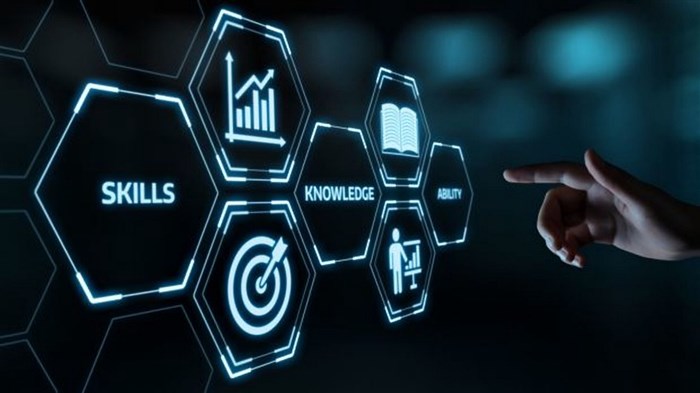Technology moves fast — and so do opportunities. If you want to stay relevant, boost your income, or pivot into a digital career, now’s the time to level up your tech skills. The good news? You don’t need a computer science degree — just curiosity, consistency, and the right learning path.
1. Artificial Intelligence (AI) & Machine Learning (ML)
AI is shaping every industry — from finance and healthcare to marketing and customer support. Learning the basics of machine learning, data analysis, and prompt engineering can open doors to high-demand roles in 2025 and beyond.
- Best for: Analysts, developers, data-driven professionals
- Where to learn: Google AI, Coursera’s Machine Learning Specialization, or free Kaggle courses
2. Cybersecurity
As more businesses go digital, protecting data becomes non-negotiable. Cybersecurity professionals are among the most sought-after specialists in 2025.
Key focus areas: Network security, ethical hacking, and risk management. Many online bootcamps offer hands-on labs you can complete in weeks.
Career insight:
The average cybersecurity analyst salary is over $110,000 in the U.S., and entry-level positions are expanding thanks to remote work and cloud migration.
3. Cloud Computing
Every major company is moving its infrastructure to the cloud. Learning how services like AWS, Microsoft Azure, or Google Cloud Platform work can help you land jobs in development, IT, or data management.
Certifications to consider: AWS Certified Cloud Practitioner, Google Cloud Fundamentals, or Microsoft Certified: Azure Fundamentals.
4. Data Analytics & Visualization
Data is only useful if you can interpret it. Mastering tools like Python, Power BI, Tableau, or Excel can make you an invaluable decision-maker.
- Learn to clean, analyze, and visualize data sets
- Understand how to communicate insights effectively
- Integrate analytics into business strategy
5. Web Development & UX/UI Design
The web is constantly evolving. Whether you’re coding the backend or designing interfaces, demand for skilled web professionals remains strong.
Focus on learning HTML, CSS, and JavaScript — then move into frameworks like React or Vue.js. For design, get comfortable with Figma, Adobe XD, or Framer.
6. Blockchain & Web3 Basics
While the crypto hype cooled off, blockchain applications are thriving — especially in logistics, supply chain, and data verification. Understanding the fundamentals of decentralized systems can make you a forward-thinking candidate in emerging industries.
Bonus Skill: AI-Powered Productivity Tools
Tools like ChatGPT, Notion AI, and Midjourney are reshaping workflows. Learning how to use (and teach others to use) these tools effectively can give you a unique advantage — even outside traditional tech jobs.
7. Digital Marketing & SEO
Every business needs visibility. Understanding SEO, PPC, and analytics helps you bridge the gap between technology and growth. AI-powered analytics now makes campaigns more efficient, measurable, and personal than ever.
8. Low-Code & No-Code Development
In 2025, you don’t need to be a full-stack developer to create software. Platforms like Bubble, Glide, and Webflow let you build web apps and tools visually. These skills are perfect for entrepreneurs and freelancers who want to create without a tech team.
Where to Start Learning These Skills
- Coursera – Offers career-aligned specializations from top universities
- Udemy – Affordable courses with lifetime access
- LinkedIn Learning – Great for business and tech crossover skills
- freeCodeCamp – Completely free coding curriculum for beginners
FAQ Highlights
Q: Which tech skill is easiest to start with?
A: Web development or data analytics — both have tons of beginner-friendly free resources.
Q: How long does it take to get job-ready?
A: 3–6 months of consistent study can prepare you for an entry-level or freelance role.
Q: Are certificates worth it?
A: Yes, especially cloud or data-focused certificates. They add credibility to self-taught experience.





